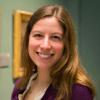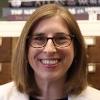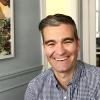Sarah Finn (Talk Title TBA)
Bringing together curators, archivists, library professionals, and scholars representing fields across the sciences and the humanities, this working group takes an interdisciplinary approach to considering the history of collections, as well as associated debates surrounding the value and purpose of collecting. This group will grapple with the past and present role of collections, and consider questions such as the following: What kinds of objects, specimens, and artifacts are considered worth collecting and by whom? How can institutions continue to maintain and care for their collections? What kinds of information and/or data are stored within collections? How can new approaches to research, teaching, and public programs allow for objects to reach new audiences and/or provide new opportunities for reinterpretation?
Upcoming Meetings
Friday, February 6, 2026, 12:30 - 1:30 pm EST
Friday, March 6, 2026, 12:00 - 1:30 pm EST
Briana Giasullo (Academy of Natural Sciences of Drexel University)
"Unlocking Biodiversity Data with AI and Crowdsourcing"
The Academy of Natural Sciences of Drexel University is using AI-powered handwritten text recognition (HTR) to transcribe field journals from their archives. Field journals are a rich source of data about biological specimens and the people who collected them, but the handwriting cannot be transcribed with traditional OCR. HTR is a good start but requires human review, so the Academy is recruiting volunteers with the Zooniverse crowdsourcing platform to correct the AI! Project lead Briana Giasullo will talk about the process and the results thus far.
Friday, April 3, 2026, 12:00 - 1:30 pm EDT
Al Coppola (John Jay College, CUNY)/Anita Guerrini (Oregon State University)
Friday, May 1, 2026, 12:00 - 1:30 pm EDT
TBA
Friday, June 5, 2026, 12:00 - 1:30 pm EDT
TBA
Past Meetings
-
Ally Fulton (University of California-Davis), “Stenographic Specimens in the Preservation of American Science”
-
Nuala Caomhanach (New York University), "From Unique to Ubiquitous: The Conflict of Endemism in Conservation Law"
-
Garrett Dash Nelson (Leventhal Map and Education Center, Boston Public Library) “More or Less in Common: Environmental Justice in the Urban Landscape”
-
Tad Brown (University of Cambridge), “Peanut Traces: Collecting Arachis from the Telegraph Line in Brazil”
"In this paper, I trace the enrolment a specific peanut, Arachis nambyquarae Hoehne, into scientific networks as a method for understanding how Brazil became known as the geographic origin of peanuts. The species was named after an Amerindian group in Matto Grosso as well as the scientist who published its first description. Botanists would later reclassify this peanut as a variety within domesticated Arachis. The taxonomic reversal offers support for the argument that the study of plant diversity includes ideas about human diversity."
-
Brooke Penaloza Patzak, FWF Schrödinger Fellow/ Visiting Scholar, University of Pennsylvania: “Geographic Provinces as a Doctrine and Framework for Scientific Collection and Display, 1860-1900"
-
Katherine Arnold, London School of Economics: "Interpreting the Collector's Logic: The Pursuit of Desiderata in Early Nineteenth-Century Southern Africa"
-
Andrea Marshall, Centre for Media and Celebrity Studies: "Zines as Nonbinary Objects and Questions of Privilege"
-
Katherine McLeod, New York University: "What to do about rats in the archive," from her dissertation, "How to Display a Hoatzin: Ecology, Eugenics, and Zoology in the Early 20th Century United States"
-
Maura C. Flannery, Professor Emerita, St. John's University, NY/Research Associate, A.C. Moore Herbarium, University of South Carolina, Columbia: "Can Digital Collections Bridge the Gap between the Humanities and Science?"
-
Jesse Smith, Research Curator at the Science History Institute in Philadelphia, on “Instruments, Industries, and Invertebrates: Curating Water in the Public History of Science.”
Jesse will be giving us a brief virtual tour of the new “Downstream” exhibit at the Science History Institute and will talk through the process of its development. Then, we will turn to a broader discussion about the relationship between the history of science, public history, and museum exhibitions. Jesse has included two articles (attached) that offer some background about the collections and exhibitions at the Science History Institute.
-
Nushelle de Silva, Massachusetts Institute of Technology: "Conditioning Art, Air, and Action: Exhibition Conservation in the Art Museum"
-
Anisha Gupta, American Philosophical Society: "Conservation is not neutral: an anti-colonial framework for collections care"
-
Nadine Löhr, Saxon Academy of Sciences and Humanities: "Collecting Arabic Scientific Manuscripts - Ptolemy’s Tetrabiblos in Mashhad, Iran"
-
Alison Laurence, Stanford University: "The Quick and the Dead at La Brea: Affective Encounters with Ice Age Los Angeles"
-
Lukas Rieppel, Brown University: "Locating the Central Asiatic Expedition: Circulation and Accumulation in Early 20th Century Natural History"
-
Adrianna Link, American Philosophical Society: "Cultural Diplomacy, Conservation, and Computers: Designing an International Center in the Smithsonian Quadrangle"
-
Elaine Ayers, New York University: "Had There Been No Witnesses: Corpse Flowers, Monstrosity, and the Politics of Discovery in Early-Nineteenth Century Colonial Botany"
Group Conveners

Reed Gochberg
Dr. Gochberg is Curator at the Boston Athenaeum. She holds a PhD in English from Boston University and is the author of Useful Objects: Museums, Science, and Literature in Nineteenth-Century America (Oxford University Press, 2021).

Adrianna Link
Dr. Link is Curator of History of Science at the American Philosophical Society's Library & Museum. She received her PhD in History of Science from The Johns Hopkins University and is interested in the history of anthropology and its relationship to collections and collecting practices.

Jesse Smith
Jesse Smith is director of curatorial affairs and digital content at the Science History Institute, where he oversees exhibitions and other interpretive projects in the history of science. He is also associate editor of the journal History and Technology. Jesse earned his PhD in the history and sociology of science at the University of Pennsylvania.